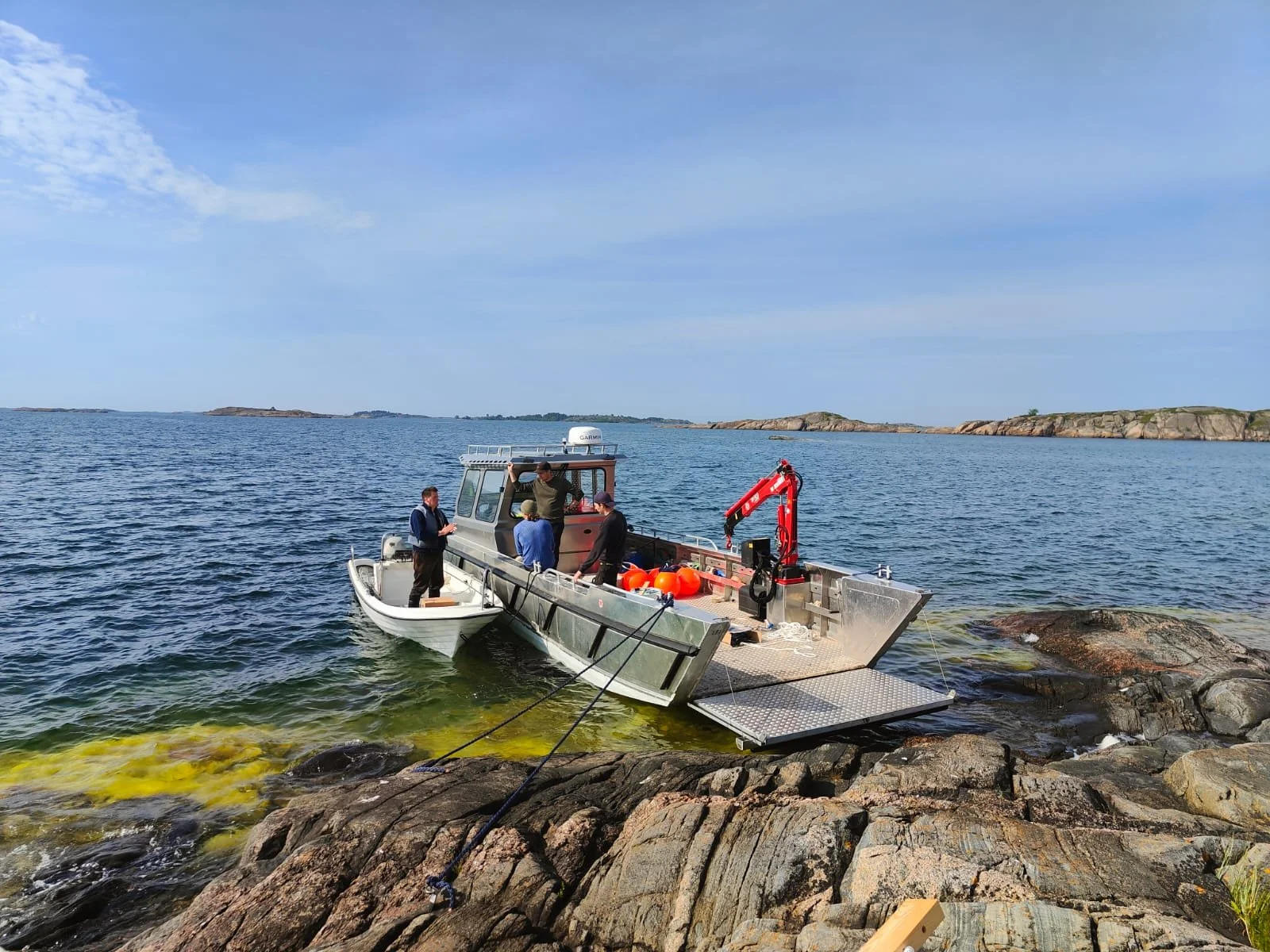
A NEW INNOVATIVE PROJECT FOR REDUCING EUTROPHICATION AND SUSTAINABLE MAINTENANCE OF LAWNS, GOLF COURSES AND GREEN AREAS
PROJEKT BALTIC BIOSTIMULANTS
Beachcast and Cladophora Glomerata for nutrient recirculation – new project 2025.
The project started in spring 2025 and will run for four years. The project is led and coordinated by Under Ytan. The main partners in the various stages are Nemo Seafarms, Nylands Fiskeförbund and Golf Course Consulting Jannenestori.
PROJECT OBJECTIVES
1. Develop a macroalgae-based biostimulant for lawns, green areas and greenhouses using washed-up seaweed and cultivated Cladophora glomerata.
2. Pilot project for sustainable cultivation techniques for Cladophora using ropes, which enable natural attachment and growth before harvesting.
3. Reduce nutrient pollution by removing phosphorus and nitrogen from the Baltic Sea using macroalgae.
4. Improve the quality of soil and grass through bioactive compounds from Cladophora and other macroalgae, and conduct tests on Finnish and Swedish golf courses.
5. Prepare for commercialisation of the circular biostimulant product and attract investors to scale up production and distribution.

THE RIGGS ARE BEING PREPARED FOR DEPLOYMENT IN THE ARCHIPELAGO SEA
4.8 km of polyester and hemp rope will be deployed on Birsskär in the Archipelago Sea, in Porvoo and Sipoo until November 2026. In the picture you can see two of a total of 6 rigs deployed to capture Cladophora for easy harvesting during the spring, summer and autumn. The technology and rigs have been developed by Under Ytan and Nemo Seafarms.
PROJECT SUMMARY
The Baltic Biostimulants project aims to develop a sustainable, macroalgae-based biostimulant that utilises seaweed biomass washed ashore on beaches and cultivated Cladophora glomerata from the Baltic Sea.
The cultivation utilises natural reproduction and the cultivation platforms are developed to optimise growth. Harvesting techniques are being explored for optimal collection of both seaweed and cultivated biomass.
This approach helps to absorb nutrients, reduce eutrophication and at the same time create a circular nutrient cycle that benefits the marine environment and professional lawn care.
By converting underutilised macroalgae into a high-quality biostimulant product, the project supports ecosystem restoration and the principles of circular bioeconomy, while reducing dependence on synthetic fertilisers.

Coffee break on the lake. Baltic Biostimulants also aims to create more sustainable jobs in the archipelago. In the future, algae farming could become part of the blue archipelago industry of the future
TIMELINE
Year 1.
Biomass collection, propagation trials with Cladophora, initial formulation of biostimulants, communication. (Support from Ahti)
Year 2.
Collection of biomass, propagation trials with Cladophora, upscaling tests, product refinement, field trials on grass, market entry strategy, development of business models, communication (Support from Ahti)
Year 3-4.
Commercial upscaling, regulatory compliance, replication in other regions, assessment of long-term effects and communication.




